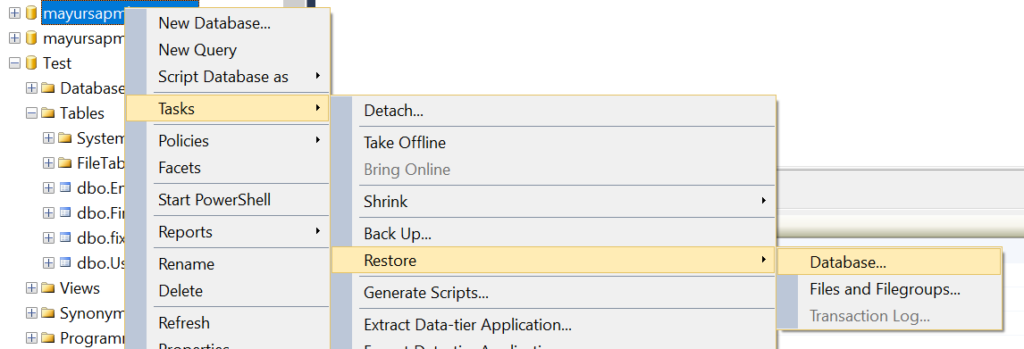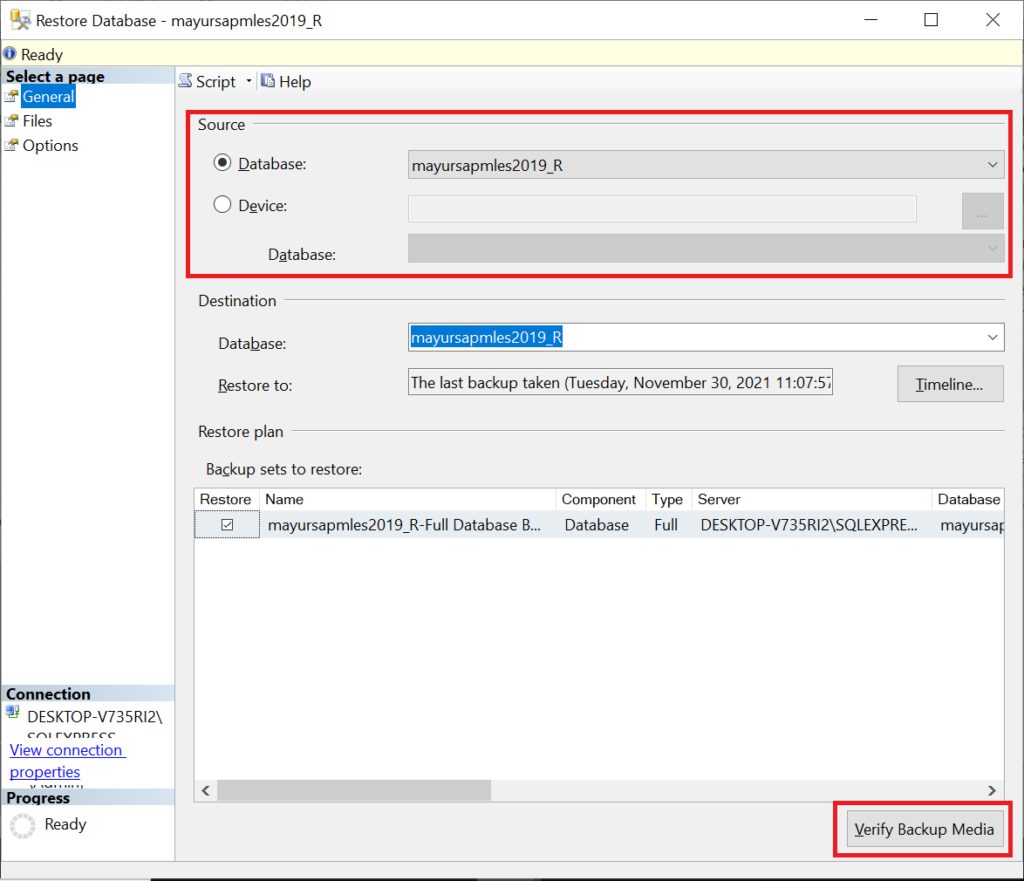How to Restore Table Data in SQL Server? Working Steps

Unfortunately, thousands of database administrators face the problem of accidentally deleting data stored in SQL Server tables. In this article, you will learn about the best methods to restore table data in SQL Server.
Restore refers to copying backup files from secondary storage to a new database or an existing database with new entries.
Recovery consists of recovering a damaged database from the last known good database through log files.
Now you understood the difference between restoring and recovering data in SQL Server. The following focuses on how to restore table data in SQL Server?
What is Restoring in SQL Server?
In order to recover data, we need to have the task of backing up files. The backup file is created manually. The SQL database tool itself offers options for creating and storing backup files in local storage, cloud storage, or other databases.
However, there is one caveat when we talk about recovering data in SQL Server. You need to create a backup file. Then the backup file created will save all the data until it is created and you keep updating it. This is a manual process and you will have to repeat the efforts to create it over and over again.
Even if the backup file is created for the first time. The next time the backup file is created, the same file will be overwritten. The new data will be saved on it. Otherwise, you can create a new backup file for each backup. In general, DBAs prefer these two methods as it depends on the purpose of keeping records or reports.
How to Restore Table Data in SQL Server Database?
SQL Server enables the database to be restored from the backup file. From the database or the local computer. Select the SQL Server database backup file from the location.
1: First, Right Click on a Database >> Task >> Restore >> Database
2: Next, Select Source Destination: Database or Device
3: In the Next Step Click on Verify Backup Media >> OK
4: Finally Restore Process Completed.
Limitations to Restoring Database in SQL Server
If the backup file is not created, it will be difficult to restore the data. This requires a recovery option.
Example: Consider what to do if you forget to create a backup file with the most recent date, or the backup file may be deleted or damaged. At that moment, your critical data is lost, it will be a moment of panic.
But in today’s world, there are no data-related risks. The data center understands and knows the value of data security. Therefore, we have many software developers in the competition who develop software to protect and restore lost or damaged data. One of the best solutions is the SQL Server Recovery Tool.
It’s the best on the market, not because it can restore data on the SQL Server, but because its demo version can help you analyze and see if the operation you are trying to perform is applicable to the tool.
Another reason we recommend this tool is that it can restore any bit of data that you have deleted or damaged.
Software Working Steps to Restore Table Data in SQL Server
To restore the database, the tool needs the database MDF file.
1. Click Open to navigate to the MDF file and load it into the tool
2. Depending on your query, select the Scan option from the two options
Quick and Advance scan are the two options you get when you open the .mdf file.
Quick: Used for restoring small data objects.
Advance: Used to restore deleted data objects that were involved in large-scale database corruption.
There is another option to choose the version of the SQL database. I would recommend leaving it in the auto-detect status. Don’t forget to check the box: Recover Deleted Objects.
3. Preview the recovered SQL Database Tables with deleted objects and records
You can preview the data to be recovered. Therefore, you can selectively choose the data objects provided in the tab to be restored.
4. Select the Export option to save the restored SQL Server database objects and records.
SQL Server Database, SQL Server Compatible Script, and CSV Format are the three options for exporting the database. Choose accordingly.
You can also restore with or without a schema. Choose whether you want to restore deleted objects and records.
Summary
Today we got to know a function of the SQL server that is supposed to restore table data in SQL Server. Additionally, we learned that if there are any recovery restrictions, it is imperative to keep the recovery tools used to restore the database because it is convenient to have a database that will not get corrupted.







